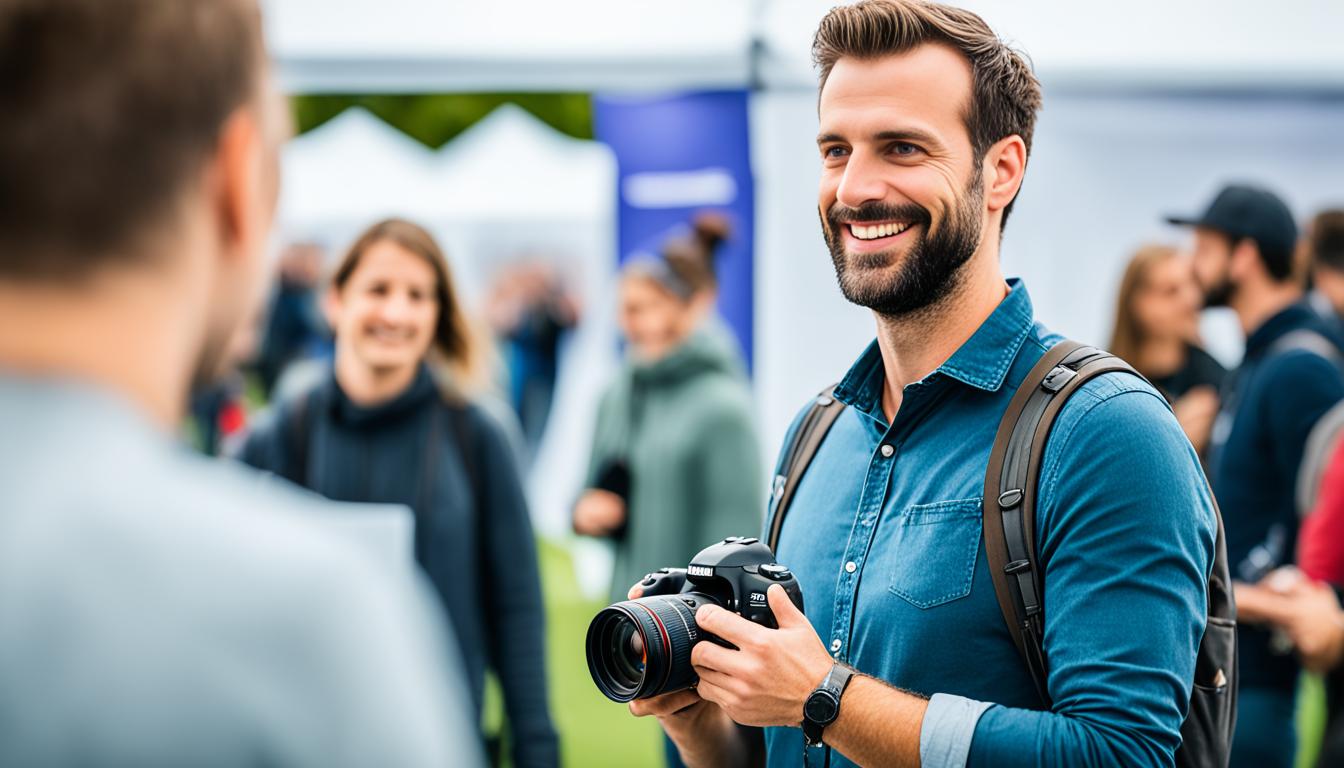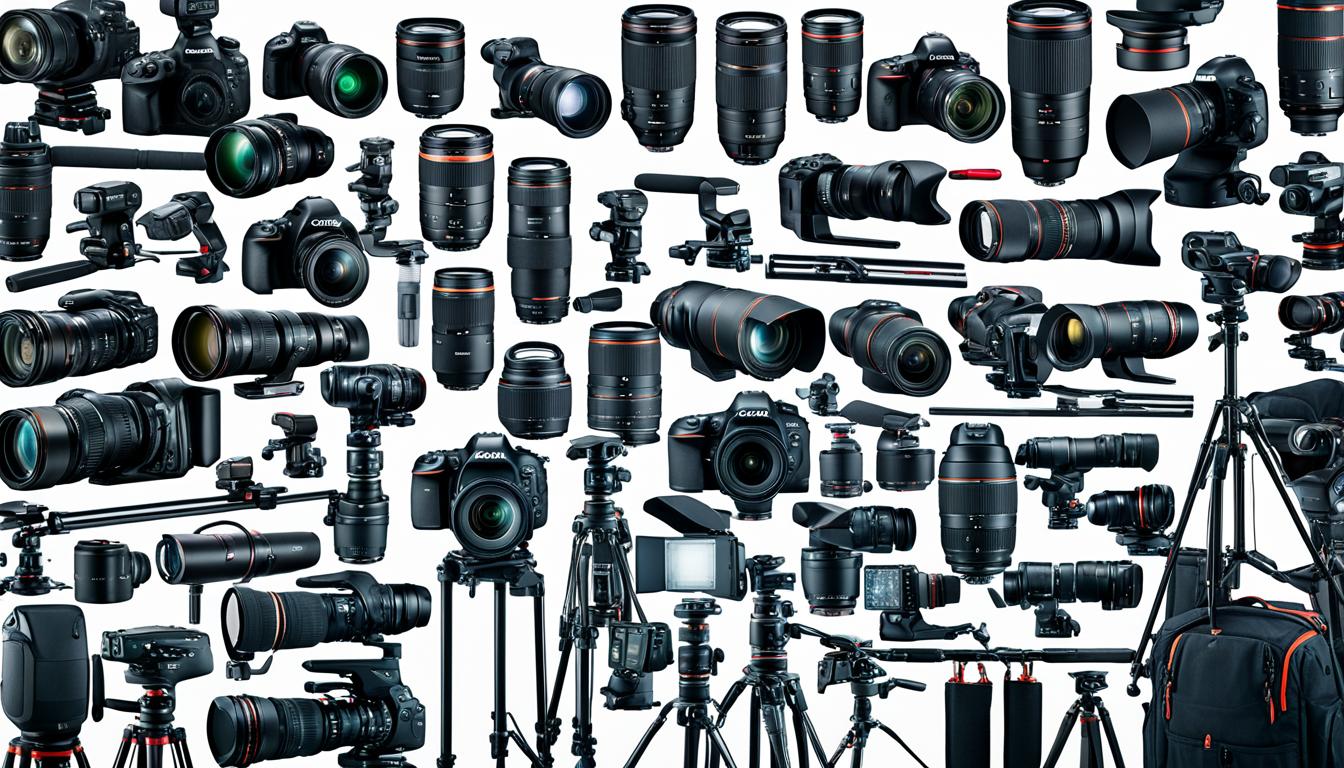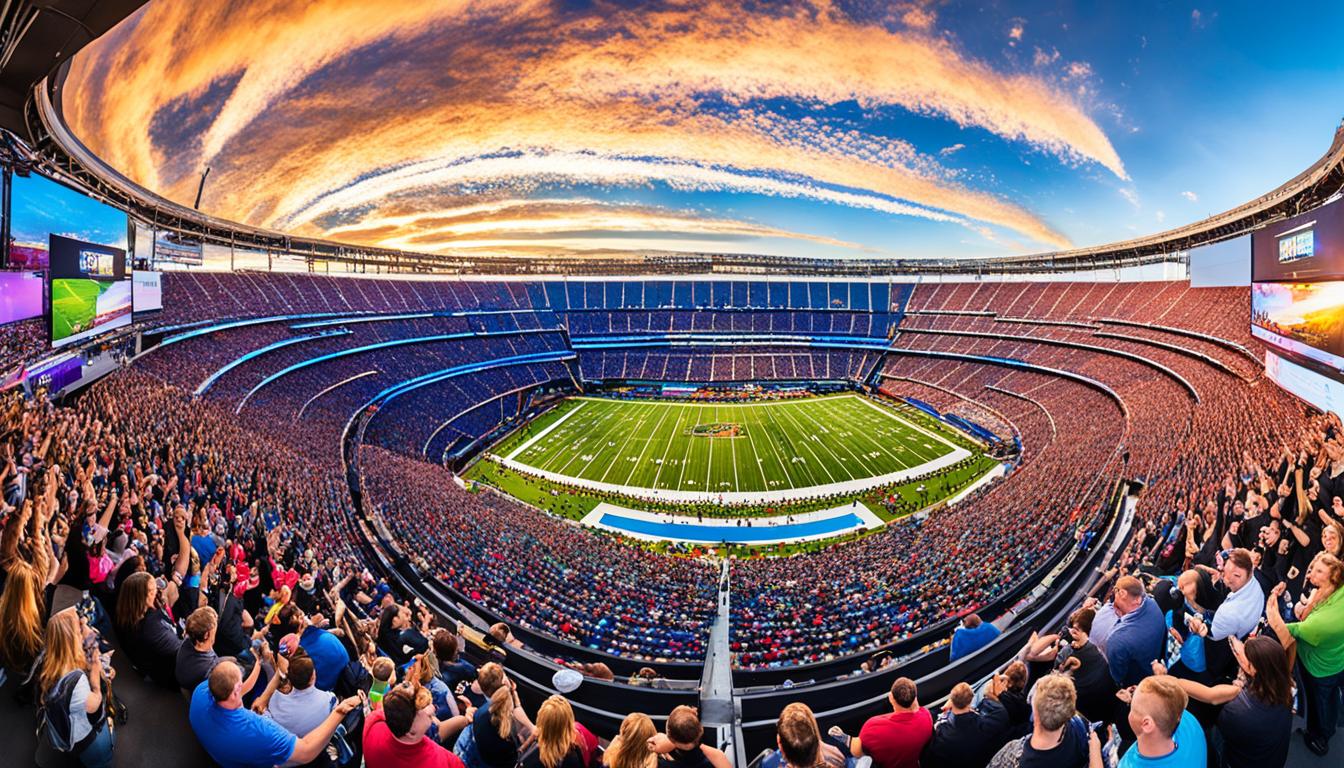In event photography, adhering to ethical considerations is crucial for maintaining professionalism, respecting subjects’ rights, and upholding the integrity of the industry. As photographers, we have a responsibility to approach our work with ethical practices that prioritize accuracy, respect, and consideration.
When it comes to event photography ethics, there are several best practices that we should follow. These include accurately representing subjects, avoiding misrepresentation through editing, and demonstrating respect and consideration for our subjects. Additionally, maintaining professional conduct in all interactions is essential in upholding ethical standards.
Ethics in event photography can vary, but there are guiding principles that can help us navigate ethical decision-making. For instance, the National Press Photographer Association’s Code of Ethics provides a comprehensive framework that event photographers can refer to.
By considering the ethical implications of our work, we not only demonstrate our commitment to professionalism but also contribute to the overall reputation of the industry. Our ethical conduct can enhance our clients’ trust and satisfaction, ensuring that we provide them with high-quality images that accurately depict their events.
Key Takeaways:
- Following ethical considerations is essential in event photography for maintaining professionalism and integrity.
- Accurately representing subjects and avoiding misrepresentation through editing are important ethical practices.
- Respecting and considering the rights and privacy of subjects is crucial in event photography.
- Maintaining professional conduct in all interactions is a key aspect of ethical event photography.
- The National Press Photographer Association’s Code of Ethics can guide event photographers in making ethical decisions.
Understanding Ethics in Event Photography
Ethics in event photography play a crucial role in maintaining the integrity of the industry and building a strong professional reputation. As event photographers, it is our responsibility to accurately document events and preserve them for our clients. However, it’s important to recognize that photography ethics can be subjective and may vary based on location, the type of photography being practiced, and personal values.
By adhering to ethical principles, we can not only ensure our work meets professional standards but also enhance the trust and satisfaction of our customers. When clients hire us, they expect us to capture their events in a respectful and ethical manner. This means portraying subjects accurately, respecting their privacy, and avoiding manipulations that can mislead viewers.
Why are ethics important in event photography?
- Maintaining Integrity: Ethical conduct is essential in upholding the standards and reputation of the event photography industry. By adhering to a code of ethics, we demonstrate our commitment to professionalism, fairness, and respect for all parties involved.
- Preserving Trust: Ethical photography practices build trust between photographers and their clients. When clients know that we prioritize their interests, respect their privacy, and accurately represent their events, they are more likely to trust us with their important occasions.
- Enhancing the Industry’s Reputation: When photographers prioritize ethics, it contributes to the overall positive reputation of the event photography industry. By upholding high ethical standards, we inspire confidence in potential clients and help create a favorable image for the industry as a whole.
Understanding ethics in event photography involves not only following established codes of conduct but also considering the unique values and expectations of each event we capture. By prioritizing ethical principles, we can ensure that our work maintains its integrity, respects the rights and privacy of our subjects, and delivers exceptional results for our clients.
Legalities and Ethics in Event Photography
When it comes to event photography, legalities and ethics play a crucial role in shaping our conduct and ensuring that we uphold professional standards and integrity. The National Press Photographer Association (NPPA) has established a comprehensive code of ethics that applies to event photography, as well as other forms of photography. Adhering to this code of conduct helps us navigate the intricacies of legal and ethical issues that can arise while capturing events.
“As event photographers, we are committed to accurate and thorough representation of our subjects. We understand the importance of not misrepresenting them during the editing process, which ensures that our images maintain their authenticity and truthfulness.”
The NPPA’s code of ethics emphasizes the significance of showing consideration and respect for our subjects. By prioritizing their rights, privacy, and dignity, we build trust and maintain professional relationships with those we photograph. Additionally, maintaining professionalism in all our interactions, both behind the camera and in our interactions with clients and event participants, is essential for upholding the reputation of the event photography industry.
| Key Ethical Principles in Event Photography | Explanation |
|---|---|
| Accurate representation of subjects | Ensure that our images truthfully reflect the events and the people involved. |
| No misrepresentation during editing | Avoid altering images in a way that misleads or deceives viewers. |
| Consideration and respect for subjects | Show empathy, professionalism, and respect towards the subjects we photograph. |
| Maintaining professionalism | Behave ethically and respectfully in all our interactions during events and with clients. |
By adhering to these ethical principles, event photographers can navigate the legal complexities associated with photographing public and private events. We can capture moments that reflect the truth and significance of these occasions while treating our subjects with the respect they deserve.
“It is our responsibility as event photographers to ensure that we operate within the bounds of the law and uphold a high standard of ethical conduct. This ensures that our work maintains its integrity and demonstrates our commitment to the craft.”
By following a code of conduct and considering the legalities and ethics in event photography, we can establish our reputation as trustworthy and professional photographers, gaining the trust of our clients and the respect of our peers.
The Importance of Ethics in Event Photography
Ethics play a vital role in event photography, serving as the foundation for preserving professional integrity and enhancing the industry’s reputation. By adhering to ethical principles, photographers can ensure that they accurately document events, maintain professionalism, and respect the rights and privacy of their subjects.
When we follow ethical guidelines, we contribute to the integrity of the industry as a whole. Our commitment to ethics helps build a positive reputation for ourselves, establishing trust with clients and colleagues alike.
One of the key benefits of ethical event photography is the impact it has on clients. By providing high-quality images and preserving the memories of their events, we create lasting value for those we serve.

It is through our ethical conduct that we demonstrate our professionalism and commitment to our craft. Clients and event organizers can rely on us to provide exceptional service while upholding the highest ethical standards.
By valuing ethics in event photography, we pave the way for future success and growth in our careers. We not only contribute to the industry’s reputation but also contribute to the overall positive perception of event photography as a respected and valued profession.
Photography Ethics: Principles and Context
Photography ethics is a subjective and contextual concept. As photographers, we each have our own set of principles that guide our ethical decision-making, shaped by our personal values and experiences. These principles are influenced by various contextual factors, such as the location and type of photography we practice. While there may be different interpretations of ethics in photography, there are some common questions we can consider to ensure we maintain ethical practices.
- Respecting the dignity of subjects: One of the fundamental principles of photography ethics is treating our subjects with respect and dignity. This means considering their feelings, rights, and privacy when capturing and sharing their images. We must be mindful of how our photographs may impact the individuals depicted and strive to portray them authentically and respectfully.
- Responsibilities to subjects and audience: Another important aspect of photography ethics is understanding our responsibilities to both our subjects and our audience. We must be transparent about our intentions, obtain necessary permissions, and ensure that our work is honest, accurate, and free from manipulation. It is our duty to provide our audience with truthful representations of the subjects we photograph.
- Avoiding harm and manipulation: Ethics in photography also involve avoiding harm and manipulation in our images. We should strive to depict scenes and subjects in a way that does not cause harm or perpetuate stereotypes. By avoiding manipulation, we maintain the integrity of our work and establish trust with our audience.
“Ethics in photography are about maintaining integrity, treating subjects with respect, and ensuring our work is honest and truthful.”
By considering these principles and navigating the contextual factors that influence ethical decision-making, we can strive to practice photography with integrity and respect for our subjects. Ethical photography not only benefits our own professional reputation, but it also contributes to the overall integrity and reputation of the industry as a whole.
| Principles of Photography Ethics | Contextual Factors |
|---|---|
| Respecting the dignity of subjects | Location: Cultural norms and traditions |
| Responsibilities to subjects and audience | Type of photography: Photojournalism, portrait, commercial |
| Avoiding harm and manipulation | Subject matter: Sensitive issues, vulnerable populations |
Ethical Considerations in Photography: Privacy and Manipulation
Privacy and manipulation are two important ethical considerations in event photography. As photographers, we have a responsibility to respect the privacy of our subjects and to obtain explicit consent when necessary. This ensures that we are not infringing upon their rights or capturing them in compromising situations without their knowledge or approval. By doing so, we demonstrate professionalism and maintain the trust of our clients and subjects.
In addition to respecting privacy, it is crucial that we avoid any form of manipulation in our event photography. Manipulating images to deceive or mislead viewers is a breach of ethical standards and compromises the integrity of our work. It is essential to present events truthfully and accurately, documenting the moments as they unfold without altering or misrepresenting the reality of the scene.
Manipulation can take many forms, including altering the composition, colors, or content of an image to create a different narrative or evoke a specific emotional response. While some post-processing techniques are acceptable in event photography, such as enhancing lighting or adjusting minor imperfections, it is essential to maintain transparency and inform viewers of any significant alterations. This ensures that they are aware of the manipulated elements and can interpret the image with the appropriate context.
“Honesty and transparency are the cornerstones of ethical event photography. By respecting privacy and avoiding manipulation, we uphold the integrity of our work and maintain the trust of our clients and subjects.”
Failure to uphold these ethical considerations can have lasting negative consequences. Misused consent or privacy breaches can harm the reputation and well-being of our subjects, leading to legal ramifications and damage to their personal and professional lives. Manipulating images can erode trust, not only between photographers and their subjects but also between photographers and their audience.
By prioritizing privacy and honesty in our event photography, we contribute to a more ethical and professional industry. We establish ourselves as trustworthy photographers who capture the essence of events while respecting the boundaries and rights of our subjects. This fosters a positive reputation, attracts new clients, and allows us to contribute to the preservation of valuable memories.
As professionals, it is our duty to be vigilant and self-reflective, continuously evaluating our practices and ensuring that we operate with the highest ethical standards. By doing so, we not only protect our subjects but also ourselves and the broader photography community.

Conclusion
Ethical considerations in event photography are essential for maintaining professionalism, respecting subjects’ rights and privacy, and upholding the integrity of our industry. By adhering to a code of conduct, respecting the dignity of our subjects, obtaining consent when necessary, and avoiding manipulation, event photographers can ensure that our work is ethical and of the highest standard.
Meeting ethical standards not only benefits us as photographers, but it also enhances the industry’s reputation and builds trust with our clients. When we prioritize ethical conduct, we demonstrate our commitment to professionalism and the responsible handling of our clients’ events. This, in turn, strengthens the trust and confidence that clients place in us to capture meaningful moments.
In conclusion, by maintaining a strong commitment to event photography ethics and conducting ourselves with utmost professionalism, we contribute not only to our own success but also to the overall growth and reputation of the industry. Let us continue to uphold ethical principles, respect the rights and privacy of our subjects, and maintain the integrity of event photography. Together, we can create exceptional images that preserve memories and inspire trust.
FAQ
What are some ethical considerations in event photography?
Ethical considerations in event photography include accurately representing subjects, not misrepresenting them through editing, showing respect and consideration for subjects, and maintaining professional behavior.
How can event photographers ensure ethical conduct?
Event photographers can ensure ethical conduct by adhering to a code of conduct, such as the National Press Photographer Association’s Code of Ethics, which provides guidelines for accurate representation, respect for subjects, and professional behavior.
Why are ethics important in event photography?
Ethics in event photography are important for maintaining professionalism, respecting subjects’ rights and privacy, and upholding the integrity of the industry. Adhering to ethical principles also enhances client trust and satisfaction.
Are there any established ethical principles for event photography?
Yes, the National Press Photographer Association (NPPA) has established a code of ethics that applies to event photography and other forms of photography. Key ethical principles include accuracy in representing subjects, avoiding misrepresentation during editing, showing respect for subjects, and maintaining professionalism.
How do ethical considerations vary in photography?
Photography ethics are subjective and can vary based on location, type of photography, and personal values. However, there are common questions that photographers can consider, such as how to respect the dignity of subjects and avoid harm and manipulation in their work.
What are important ethical considerations in event photography?
Privacy and manipulation are important ethical considerations in event photography. Photographers should respect the privacy of their subjects and obtain consent when necessary. They should also avoid manipulating images to deceive or mislead viewers.
What is the importance of ethics in event photography?
Ethics in event photography are important for maintaining professionalism, respecting subjects’ rights and privacy, and upholding the integrity of the industry. Adhering to ethical principles enhances the industry’s reputation and builds trust with clients.
How Can I Ensure Ethical Considerations When Sharing and Tagging Event Photos on Social Media?
When sharing and tagging event photos on social media, it’s crucial to consider ethical implications. Remember to always ask for consent before tagging others in photos. Respect people’s privacy and avoid posting any sensitive or inappropriate content. Follow these social media event photo tips to ensure ethical sharing.




